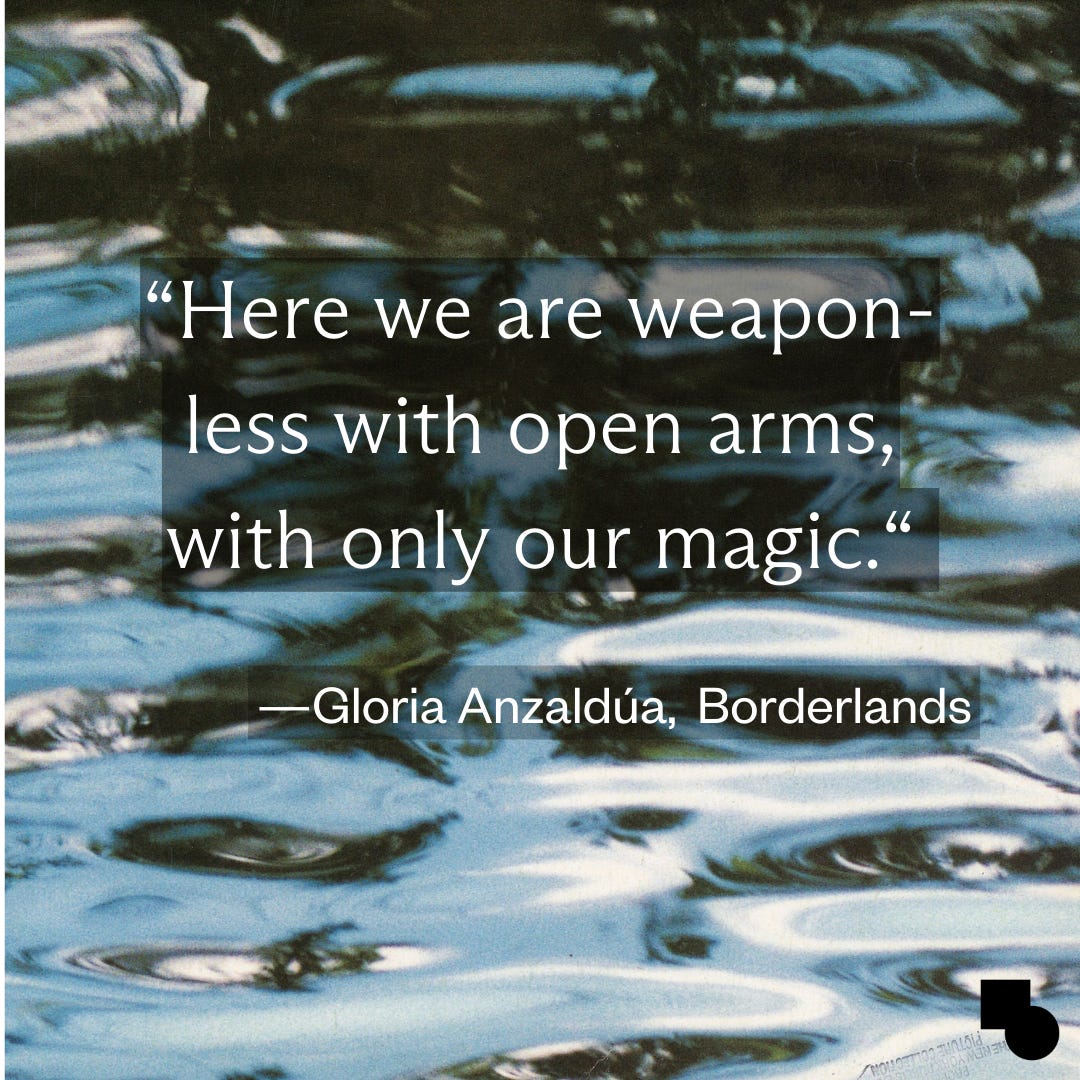¿Cachai? is the official newletter of The Pack. Read along for the love of synchronized idiosyncrasies written in the romance language of art. I will be sharing notes from the studio, news from the classroom, moon cycle insights, tarot readings, and an overall glimpse into the biodiversity of The Pack.
Today is a New Moon—a beginning— in Pisces, the watery slice of the year where fantasy flows in the grooves of reality. This magic-realist waterslide is a space for dreaming in the fast-lane. And sometimes the fastest route to a dream is a rejection, a grievance, a waiting. A rejection here leads to a fantasy there, as our watery selves embody grander tales than the systems that hold us. But we do need to be held, to been seen. We need a “‘Mechanics’ of Fluids” as Luce Irigaray called it: a recognition of those who go missing in systems not designed to acknowledge them.
In “Politics of Recognition”, Charles Taylor writes, “Non-recognition can inflict harm, can be a form of oppression, imprisoning someone in a false, distorted, and reduced mode of being.” “Recognition,” he says, “is not just a courtesy we owe to people, it is a vital human need.”
In honor of Women’s History Month—and the mechanics of our fluid New Moon in Pisces— I’d like to recognize a few women/scholars who speak to the vital human need of recognition, and speak for Piscean dreams that will be made real in the future perfect.
Let’s begin with Luce Irigaray herself, breaking down the relationship of fluids to the “theoretical machine”:
”Now if we examine the properties of fluids, we note that this "real" may well include, and in large measure, a physical reality that continues to resist adequate symbolization and/or that signifies the powerlessness of logic to incorporate in its writing all the characteristic features of nature. And it has often been found necessary to minimize certain of these features of nature, to envisage them, and it, only in light of an ideal status, so as to keep it/them from jamming the works of the theoretical machine.”
Next, Gloria Anzaldúa speaks on identity-wounding in a monological culture that doesn’t recognize the needs of its constituents. She also declares another way:
"Yes, all you people wound us when you reject us. Rejection strips us of self-worth; our vulnerability exposes us to shame. It is our innate identity you find wanting. We are ashamed that we need your good opinion, that we need your acceptance. We can no longer camouflage our needs, can no longer let defenses and fences sprout around us. We can no longer withdraw. To rage and look upon you with contempt is to rage and be contemptuous of ourselves. We can no longer blame you, nor disown the white parts, the male parts, the pathological parts, the queer parts, the vulnerable parts. Here we are weapon-less with open arms, with only our magic. Let's try it our way, the mestiza way, the Chicana way, the woman way.” (Borderlands p. 88)
In her essay, ‘Cross-Cultural Mind-Reading; Or, Coming to Terms with the Ethnic Mother in Maxine Hong Kingston's ‘The Woman Warrior’,’ Klarina Priborkin writes the following, in favor of a relational identity, rather than individualistic:
“Although the Western, individualistic self needs the other in order to define itself in opposition, the other also becomes a symbol of rejection, something one fears and even disdains. The individualistic self does not acknowledge its dependence on the other, but rather diminishes the other in order to uphold its own superiority.”
She continues, “It is therefore through a renewed perception of our identity as relational rather than individualistic that a change in our perception of diversity can occur.”
And lastly, the words of Ama Ata Aidoo from her book, Our Sister Killjoy, which addresses ‘colonization of the mind’ as the main character, Sissie, travels from Africa to Europe for a “better” education:
“We are victims of our History and our Present. They place too many obstacles in The Way of Love. And we cannot enjoy even our differences in peace.”
What all these women are acknowledging is the power of being seen and celebrated for our fluid, historic, and sometimes unprecedented, qualities. I, myself am dreaming of a world full of deep, relational recognition. May we all be seen on our magic-realist waterslides.
Thank you for reading and for being a part of The Pack— an art school for the fluid, the messy, the chaotic, the wild.




